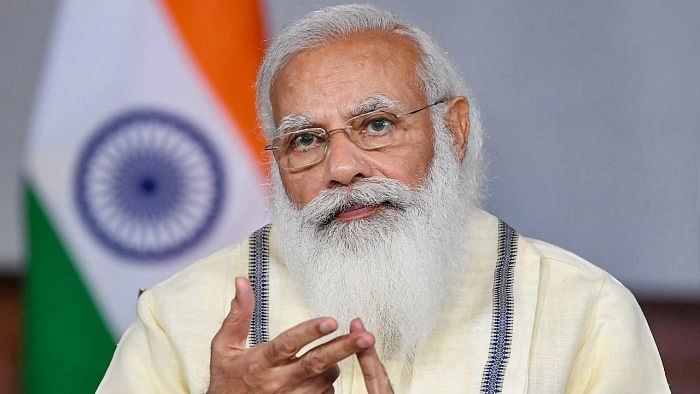
With the “India Out” campaign once again gaining momentum in the Maldives, Prime Minister Narendra Modi called up the island nation’s President Ibrahim Mohamed Solih on Wednesday.
The Prime Minister conveyed to the President of Maldives that the Indian Ocean archipelago was “a central pillar in India’s ‘Neighbourhood First’ policy and its maritime vision of Security and Growth for All in the Region (SAGAR)”.
Maldives is one of the South Asian nations where China is trying to elbow out India and expand its footprints.
New Delhi suspects China and its “iron brother” Pakistan are using radical elements and the opposition parties in the Maldives to run the “India Out” campaign.
The phone call between Modi and Solih took place just days after the marine commandos of India and Maldives had the fourth edition of ‘Ekatah’ – a joint drill on special operations and combat diving.
Modi and Solih on Wednesday reviewed the progress of the development projects being funded by India in the Maldives. They expressed satisfaction at the rapid pace of implementation of the projects despite the constraints caused by the Covid-19 pandemic, according to a press release the Ministry of External Affairs (MEA) issued in New Delhi.
The High Commission of India in Malé on July 1 last wrote to the Ministry of Foreign Affairs of the Government of Maldives, conveying concerns over the “India Out” campaign launched by a section of social media users of the island nation.
India cited the 1961 Vienna Convention on Diplomatic Relations and requested the Maldivian Government to ensure enhanced protection for its High Commission as well as its officials posted in the capital of the island nation.
New Delhi nudged the Solih Government to act against people posting comments on social media, attacking the dignity of the High Commissioner of India and its diplomats and other officials in Malé.
The “India Out” campaign was launched in the Indian Ocean nation last year by the Progressive Congress – a coalition of the opposition parties led by the Progressive Party of Maldives (PPP) – to protest against the “India First” policy pursued by the ruling Maldivian Democratic Party (MDP).
The erstwhile PPM regime led by Abdulla Yameen had put Maldives into a debt trap by awarding the state-owned companies of China contracts to build several infrastructure projects – mostly on unsustainable loan terms and ignoring the security interests of India. Though Beijing’s influence over Abdullah Yameen regime had resulted in strains in New Delhi’s relations with Malé, it saw a reset after Solih and former Maldivian President Mohamed Nasheed led the MDP to victory in the November 2018 elections.
The “India Out” campaign gained momentum in Maldives after New Delhi on February 21 last signed an agreement with the Solih Government to “develop, support and maintain” a harbour at Uthuru Thila Falhu naval base in the island nation. Though the new harbour is being built officially for the use of Maldives National Defence Force Coast Guard, it is likely to turn into a strategic asset for India and give it an edge over China, which has been trying to spread its tentacles in the Indian Ocean region.
The “India Out” campaign also criticized the Solih Government’s decision to keep the two Dhruv Advanced Light Helicopters New Delhi gifted to Malé in 2010 and 2015, although the erstwhile PPM regime was keen to return both the choppers.
